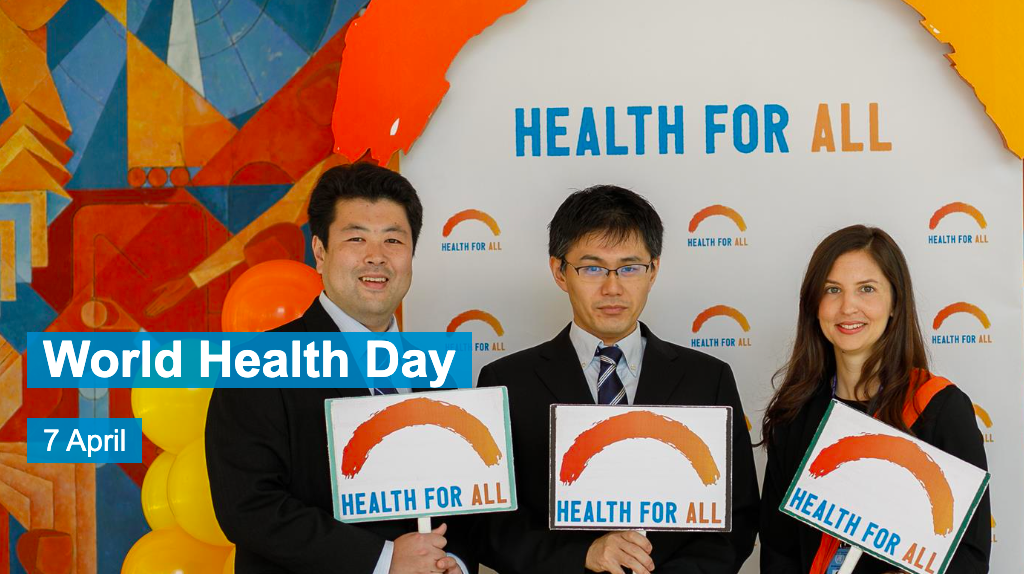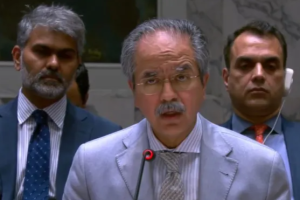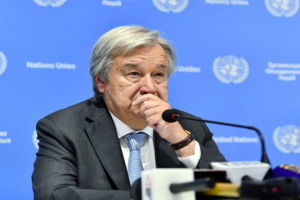Every year, 7th April is celebrated as World Health Day. This global campaign was started by the World Health Organization (WHO) in the year 1950. This international body held the first World Health Assembly in 1948, which decided to observe April 7th as the World Health Day with effect from 1950. On this day, WHO organises several activities to draw the global attention to subjects that are of utmost importance in the health sector, the celebration has aimed to create awareness of a specific health theme to highlight a priority area of concern for the WHO.
Moreover, Over the past 50 years this has brought to light significant health issues such as mental health, maternal and child care, and climate change etc. Significantly, The day is marked by activities which extend beyond the day itself and serves as an opportunity to focus globally attention on these significant aspects of global health.
Building a fairer, healthier world for everyone: Theme
This year, the WHO has set ‘‘Building a fairer, healthier world for everyone’’ as the theme for this year’s World Health Day. The major objective of this day is to ensure that everyone, everywhere realizes the right to good health. In recent years, countries in the Western Pacific have experienced rapid economic growth, migration and urbanization. It created opportunities for better lives for many, but left others behind. According to WHO, The COVID-19 pandemic has undercut recent health gains, pushed more people into poverty and food insecurity, and amplified gender, social and health inequities.
This World Health Day, WHO calling for action to eliminate health inequities, as part of a year-long global campaign to bring people together to build a fairer, healthier world. The concerned campaign highlights WHO’s constitutional principle that “the enjoyment of the highest attainable standard of health is one of the fundamental rights of every human being without distinction of race, religion, political belief, economic or social condition”, WHO asserted.
Further, The world is yet an unequal one. The places where we live, work and play may make it harder for some to reach their full health potential, while others thrive. Health inequities are not only unjust and unfair, but they also threaten the advances made to date, and have the potential to widen rather than narrow equity gaps. All over the world, some groups struggle to make ends meet with little daily income, have poorer housing conditions and education, fewer employment opportunities, experience greater gender inequality, and have little or no access to safe environments, clean water and air, food security and health services.
This leads to unnecessary suffering, avoidable illness, and premature death. And it harms our societies and economies. In other words, health inequities are preventable with strategies that place greater attention to improving health equity, especially for the most vulnerable and marginalized groups. COVID-19 has hit all countries hard, but its impact has been harshest on those communities which were already vulnerable, who are more exposed to the disease, less likely to have access to quality health care services and more likely to experience adverse consequences as a result of measures implemented to contain the pandemic.
On this Day, there is an urgency to bring significant matters like mental health, importance of hygiene, the importance of healthcare workers and many more issues to the forefront. That’s why WHO are calling on leaders to ensure that communities are at the forefront in decision-making processes as we move forward to a new future, and that everyone has living and working conditions that are conducive to good health.
Facts and Figures:
- For the first time in 20 years, global poverty levels are predicted to rise and hinder the progress towards the Sustainable Development Goals;
- Up to 60% of people living in some countries of the Region lack coverage with essential health services;
- More than 1 billion people living in informal settlements or slums are facing increased challenges in preventing infection and transmission of the coronavirus;
- The Asia-Pacific region as a whole account for nearly 82.5 million or 32% of the world’s international migrants;
- 5.9 million children in the Asia-Pacific Region are at risk of not returning back to school due to the disruption to education and the economic impact of the pandemic;
- 52% of the Asia-Pacific population remains unconnected to the internet.
This day is celebrated to shed light on significant matters including mental health, maternal and child care, climate change, the significance of healthcare workers, and many more such issues to the forefront. This day aims to spread awareness on achieving a better lifestyle and living a disease-free life. Currently, our nurses and other health workers are at the forefront and providing the required treatment, care, and support to patients, putting themselves at risk. Their selfless service and courageous act truly deserve a salute.
Meanwhile, Prime Minister Narendra Modi stated that, On World Health Day, let us keep the focus on fighting COVID-19 by taking all possible precautions including wearing a mask, regularly washing hands and following the other protocols. At the same time, do take all possible steps to boost immunity and stay fit. He said that, the day is to reaffirm our gratitude and appreciation to all those who work day and night to keep our planet healthy. It’s also a day to reiterate our commitment to supporting research and innovation in healthcare, He tweeted.
Health Minister Dr Harsh Vardhan tweeted that, The Pandemic isn’t over and there is no scope for complacency On World Health Day 2021 infuse greater zeal to #Unite2FightCorona, get vaccinated on your turn & follow COVID appropriate behaviour scrupulously! Let today serve as the perfect reminder to check up on yourself! On World Health Day, remember the golden rule of ‘Eating Right, Keeping Fit’ to nurture the only wealth that truly matters! He added.
On the occasion of World Health Day 2021, “We are very thankful to all those doctors, nurses, and entire healthcare fraternity who are powerfully cycling the war against the ongoing health menace”. In order to build a fairer, healthier world for all there is a dire need to monitor health inequities, and to ensure that all people are able to access quality health services when and where they need them, Added Trilok Singh, CEO Youth Darpan Media.

























Add Comment